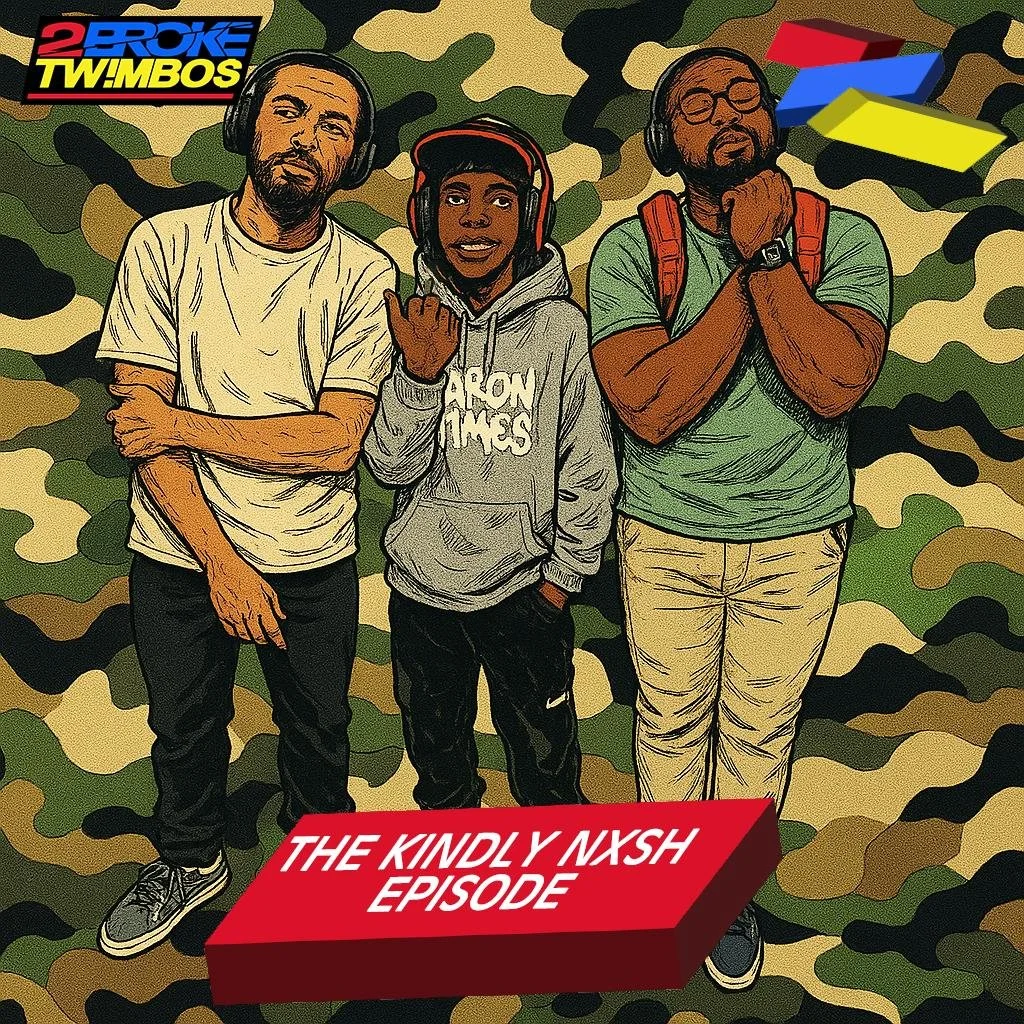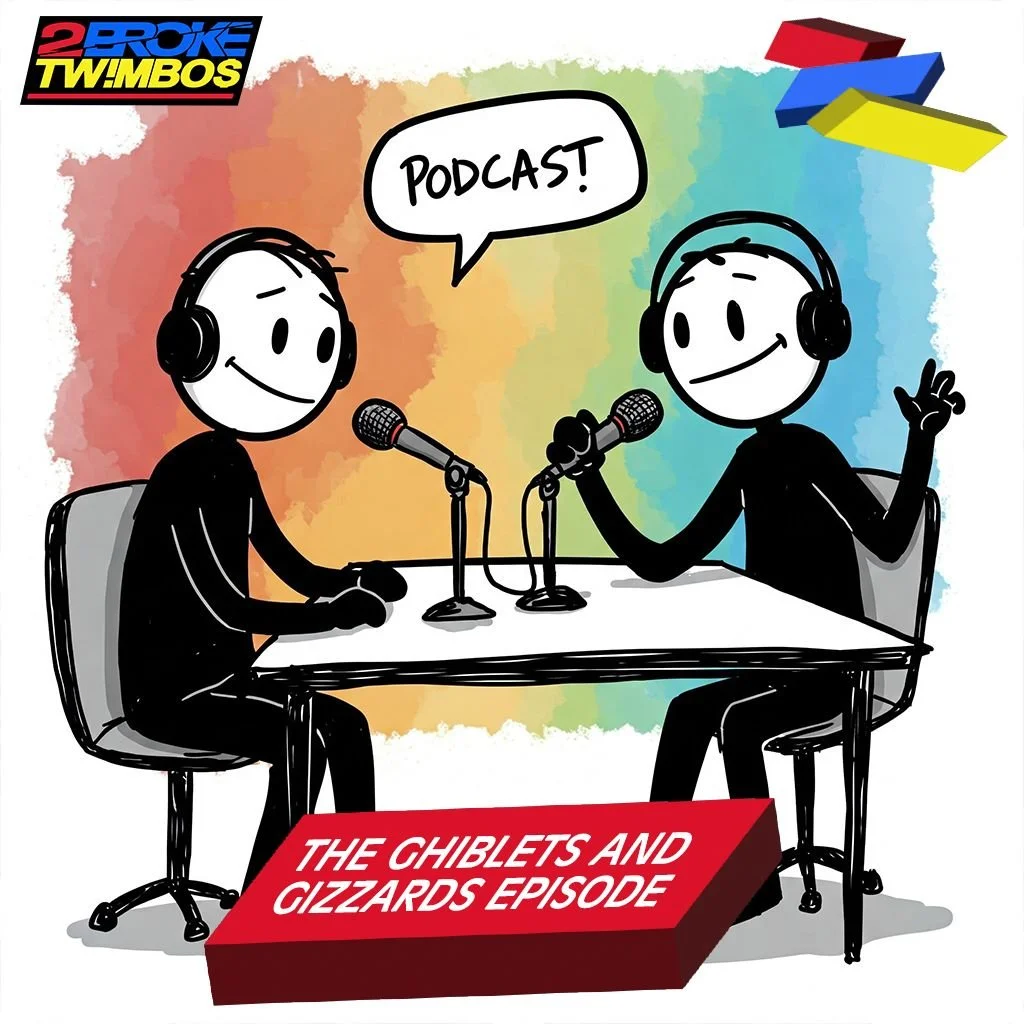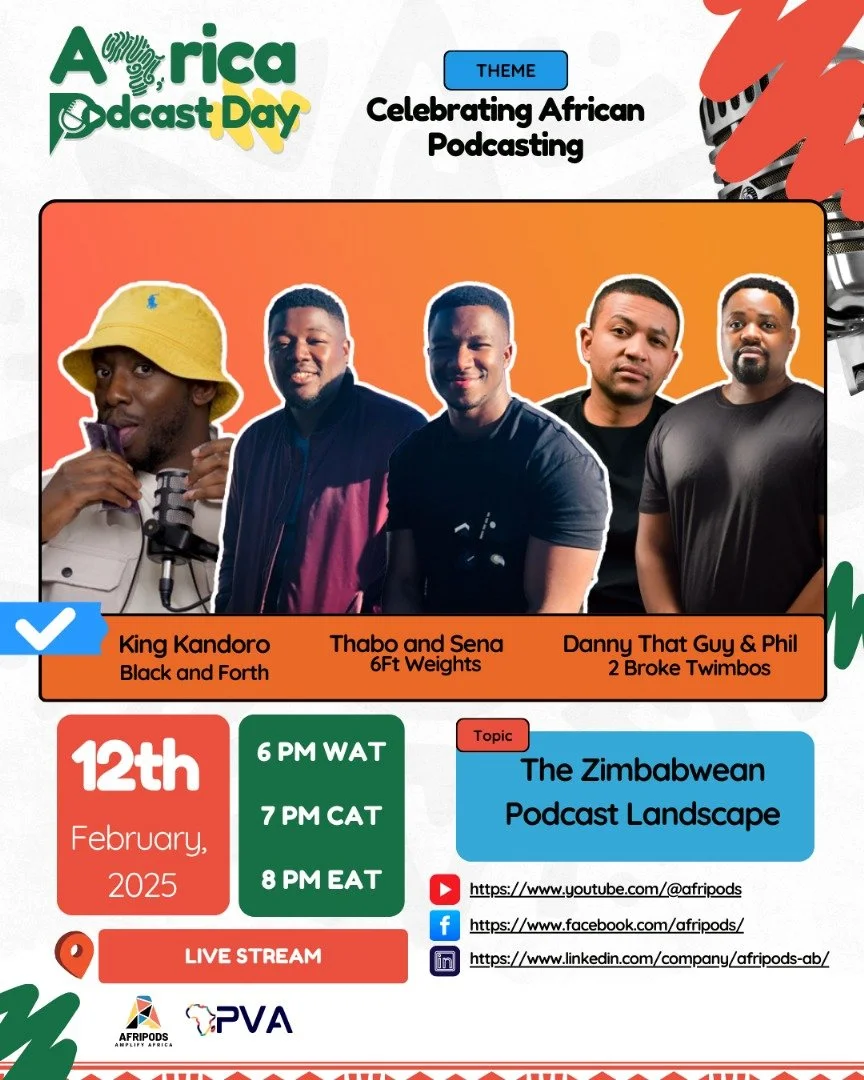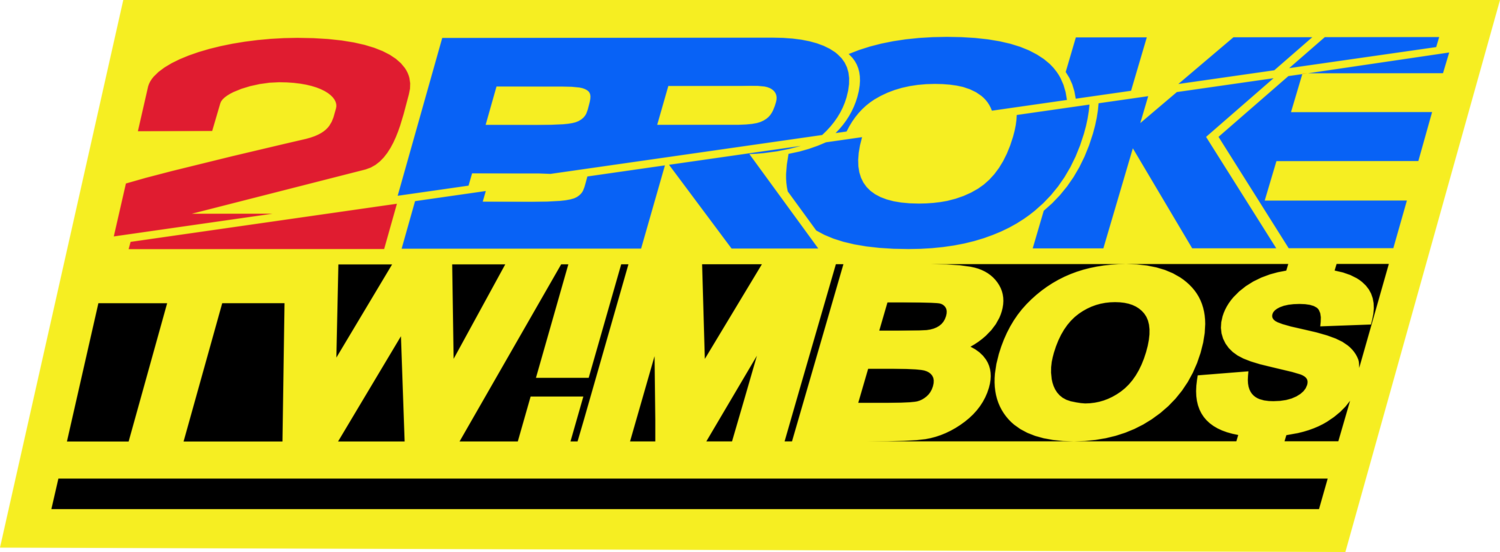ZIMURA Explains Its New Blanket License Fees
Last week social media was thrown into a furore after the release of ZIMURA’s (Zimbabwe Music Rights Association) revised public broadcast fees for venues and locations that play music for the public. Many observers seemed to misunderstand the purpose these fees played and also why ZIMURA was threatening to fine venues.
Dan and Phil managed to contact Mr. Albert Nyathi – Chairman of The ZIMURA board and Ms. Polisile Ncube-Chimhini – the Executive Director of ZIMURA to get some answers to questions that many artists and observers had.
Along with the video, you can find a full transcript of our conversation with them below.
DD: Most artists don’t seem to understand the function of ZIMURA and that it not about the artist more about the composers, maybe we could start off by briefly outlining this.
PN: When we talk of composers, we are talking of the people who write music: lyricists, producers, and publishers. When we talk of the musicians it includes those who own neighbouring rights. Rights which are related to copyrights these include the guitarist, backing vocalists, dancers …all those guys who don’t write music but who assist the composers to bring the music to the people.
DD: So, we are mostly talking about the composers and not necessarily the singers or the artist?
PN: Yes, we are talking of the composers or authors of music.
DD: In many cases, they are the same person often times they are not, correct?
PN: In Zimbabwe, most of them are the same person. You find that Oliver Mtukudzi would write his own music and sing his own music, so he was both a composer/author and as well as a performer. But if you look at somebody who was popular like Brenda Fassie, she would hardly write a song but would perform a lot of songs written by other people so she was literally a performer, not a songwriter but she popular for singing. So, for us, if the person does not write songs but just sings then they are just a performer and not an author. ZIMURA is for authors, composers, producers and publishers and not singers or performers.
AN: In many parts of the world the job of the songwriter is just that, songwriting. You may not even know them their music may be fronted by a good singer. For instance, Michael Jackson might a be a good performer, but somebody is writing. Their business is to write, and they earn money through writing. They are sitting at home; nobody knows their name and their craft is to write
PC: Let’s say I’m an artist/composer I approach ZIMURA, I come with split sheets and proof of public performances what is the procedure as outlined by ZIMURA for me to start receiving publishing royalties?
PN: If you want to join ZIMURA as a member so that you can benefit from others membership benefits that we offer you have to join guided by the membership requirements that we have. If you just want to collect your royalties without being a member, you can still collect your royalties. We are guided by the principles that we license broadcasters and we bill them a blanket license for all the music that they perform and at the same time, we give them an indemnity for third party claims. Meaning they shouldn’t have individual composers walking into their stations asking for their royalties, so even if you are not a member of ZIMURA and we have evidence that your work has been used you can collect royalties.
PC: So, let’s I have paid membership dues… How do you calculate payouts and how are payouts administered?
PN: Members do not pay anything; you just pay registration fees. These fees we use them to facilitate the paperwork that you use when you are joining membership, the deed of assignment, registration form, identity card and a membership certificate. Once you are registered you don’t pay anything any more, but you benefit from membership benefits that we have. If it’s time for distribution and the there is proof that your works have been used, you do not have to prove it yourself but we use log sheets that we receive from all radio stations that we have contracts with. They give us all the log sheets that they use from January to December – 24/7, so if we are distributing for a certain period, we look at the log sheets and all our distribution rely on those log sheets. Unless there are mechanical rights distribution which are completely different and those, we retrieve log sheets from our sister society in South Africa that is CAPASSO. It will also come with a list of those who are due for royalties.
DD: Just to bring the conversation to a less technical discussion. This week we saw some documents going around highlighting the change in tariffs, you are now proposing to charge in US dollars.
PN: Yes, the tariffs have been approved by the Ministry of Justice. We are proposing to charge in US dollars just like any other business in Zimbabwe. We live in the same space where other businesses live in. At the moment the US dollar is being used parallel to the Zim Dollar. We accept both the US and Zim Dollar, but the US dollar tariff is just basis for our fees. If you look at it properly it’s the same tariff that was being used in 2018 when the US dollar was 1:1 with the Zim Dollar. The US dollar is back in the economy and we can not ignore it.
DD: What about the payouts, are they going to be in US dollars?
PN: Some are paying in US dollar and some in Zim Dollars. If next year in June when it’s distribution time and US dollar is still a legal tender, we also going to distribute in US dollars.
PC: What methods were used to determine what establishments pay what fee for these blanket licenses? One of the queries I would have, we have banks who pay $US500 but we have bars whose primary source of revenue is directly reliant on that music are paying far less than that from $US150 – 200 for a night club. Could you explain the disparity?
PN: It’s unfortunate I do not have the tariffs in front of me. Tariffs are developed over time with tariffs you can not reinvent the wheel. You can only amend to suit you. What I can only say is that the tariffs differ from each establishment. Most of the times it varies from space of the establishment, how many employees, capacity of clients and sitting capacity for restaurants. Tariffs are developed differently, and they are never the same.
PC: One of the common questions we received from artists is for places where there is a public performance of music such as bars and nightclubs, is ZIMURA physical requesting play sheets from these establishments so they can ascertain how to distribute the royalties or are you distributing on a pro-rata basis?
PN: We actually use a pro-rata basis; this was worked a long time. The money that are received from unmonitored areas is worked as a coefficient of what we receive from the broadcasters who give us proof of what they have used. It’s very technical, it says if one is played say 5 times by a broadcaster it will be assumed that the person was played once or twice for the unmonitored places. These are called general distribution. When distributing there is will also be a column for broadcasters and live performances if there are any.
PC: For establishments of podcasts having to pay blanket licenses, how was this ascertained and how do you plan to monitor it?
PN: With broadcasters, we literally negotiate. You will notice that they pay different tariffs as well, some pay a percentage of their revenue, some a percentage of their advertising, others pay per play. It depends on the people that we negotiate with, how they want to pay, what they think it’s good for them and what we think is good for us. I think it has to be a win-win for all.
DD: Specially webcasting, podcasting and internet service providers, how do we apply for immunity on the tariffs?
PN: It’s an issue of tariff development. We do not generate our own tariffs; we rely on other societies that have had tariffs before us. Like for the Webcasting tariffs we adopted a tariff from South Africa and then we applied to the local situation in terms of the currency we use in Zimbabwe.
DD: For example, we are a podcast and occasionally we play music how do we pay you?
PN: We are in the process of getting in a contract with you guys…
DD: There are a few misconceptions about how things work, for example, if I am one of these establishments and I decide that I am not going to play Zimbabwean music I am only going to play international music so that I don’t have to pay ZIMURA, is that possible?
PN: As a collecting society we sign what are called Reciprocal Agreements with other societies all over the world. How these agreements is such that we are going to protect Lucky Dube, Rebecca Malope …in the same manner we going to protect Alec Macheso, Sulumani Chimbetu in Zimbabwe and they are going to protect our Zimbabwean artists, in the same manner, we protect theirs. So, whether you want to play music which doesn’t belong to Zimbabweans you are still going to pay for copyright fees.
AN: If we apply for a court interdict that a particular broadcaster shouldn’t play music, we are not talking about music from Zimbabwe necessarily, we are talking about music globally. What we doing as ZIMURA is not new it’s a global practice.
DD: If I’m throwing a wedding and I hire a DJ to come and play music does that mean I have pay ZIMURA?
PN: If you hire a hall which is already licensed with ZIMURA you do not have to pay anything. If you hire a DJ who has copyrights license with ZIMURA you don’t have to pay. But if you hire a hall which does not have a license and you going to play the music you have to take a special license for your function for the day.
DD: There was also a lot of concern that everyone who has a phone or a device that can play music is also going to pay tariff, is that true?
PN: For us, copyrights applies[sic] in business premises. That’s why you find that we don’t go into people’s home to ask them to take a copyright license even if they have a television or radio. As long as it’s a personal gadget we for us we won’t follow anybody.
AN: When you buy music for your family or private use that’s fine but when you use music publicly to enhance your business it is then that we have to share and pay that is the understanding globally… We are very worried because we see a lot of people who know nothing about collecting societies writing lots of stuff that they don’t understand in the process trying to confuse our clients and just the general public that is very wrong. There are lots of bloggers who just keep on blogging wrong information and that is not right. ZIMURA, from my knowledge in Zimbabwe, is the only collecting society paying royalties to copyright holders. In film, dance and theatre there is nothing. We are happy that you consulted us.
This conversation is an extract from The Zimura-Ah Episode of the podcast. Listen to it in full below.

















The end of another week means the end of all your problems! For now, at least, so we celebrate with a brand new episode of the only podcast to be 100% tariff-free in all countries! Dan & Phil talk YN’s, Zim Hip-Hop and Zimdancehall in the context of international exposure and collaborations, conspiracy theories about tariffs and all-female space crews, and even get some time in for full-on nerdy chats about Direwolves and Marvel. Enjoy!